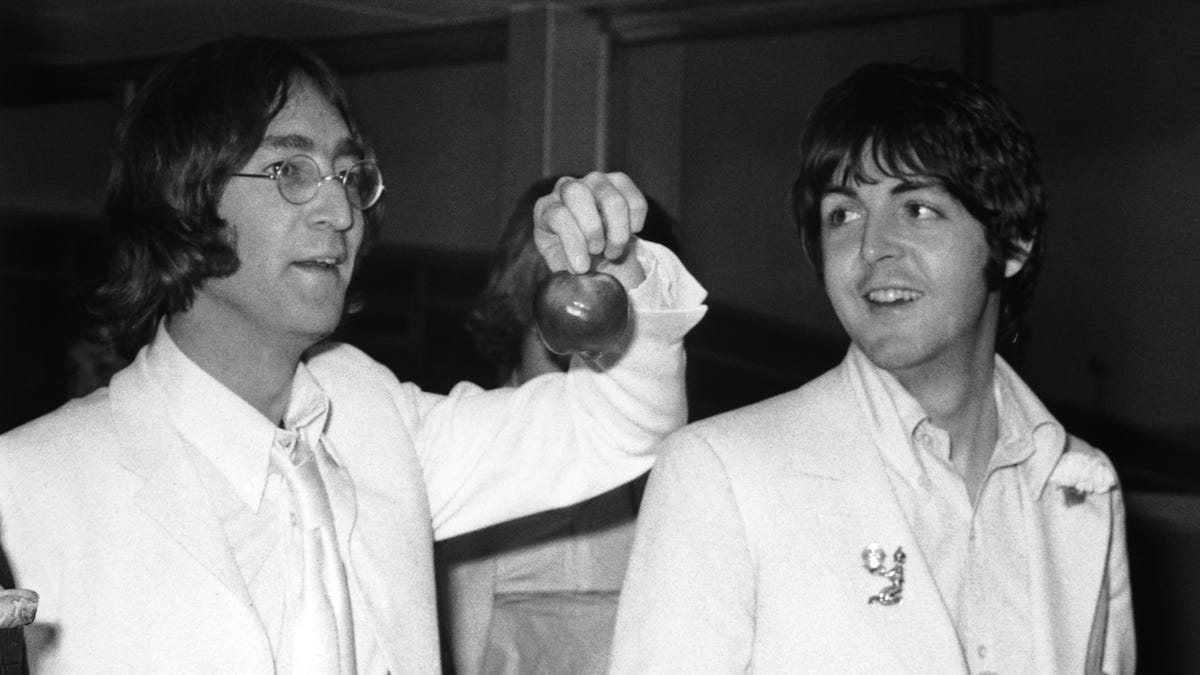Ringo Starr reveals his thoughts on The Beatles’ ‘Now and Then’
Ringo Starr chats with USA TODAY’s Melissa Ruggieri about his “brothers” in The Beatles and the band’s final song “Now and Then.”
John Lennon and Paul McCartney were each other’s favorite audience. That was plainly clear as the besotted Beatles bantered, bickered and obsessed over the 23 years they were friends and rivals.
Ian Leslie’s new biography “John & Paul: A Love Story in Songs” (Celadon, 436 pp., out now) unpacks their intense and complicated relationship from their first meeting in 1957 to Lennon’s murder in 1980.
Along the way, there’s psychoanalysis (Leslie specializes in writing about human psychology, communication and creativity) and the occasional hair-curling discovery.
Nothing here is entirely new: Leslie relies on previously published interviews and conducted just one himself for the book, with “Let It Be” director Michael Lindsay-Hogg. But Leslie does an extraordinary job of providing context for familiar anecdotes, and there are many that will feel surprising.
Among the biggest revelations:
Paul McCartney planned to pursue a solo career if The Beatles never hit it big.
When the Fab Four signed their contract with manager Brian Epstein in 1961, Paul requested a clause allowing Epstein to split up the artists “so that they shall perform as separate individual performers.” Epstein’s assistant, Alistair Taylor, recalled Paul saying he would go solo if things didn’t work out with the band.
John and Paul wrote songs together for years, but kept that a secret until Brian Epstein became their manager.
The two friends started collaborating on songs almost as soon as they met, scribbling lyrics and chords in a notebook with every entry emblazoned: “ANOTHER LENNON-McCARTNEY ORIGINAL.” But their efforts remained private until they revealed they were songwriters at their second meeting with Epstein, who responded with enthusiasm. So they introduced a few of their own compositions onstage at the Cavern Club to test the waters.
George Harrison contributed to many Lennon-McCartney compositions, but they decided to shut him out when legalizing their partnership.
As the Beatles prepared to release their first single, with the original songs “Love Me Do” and “P.S. I Love You,” Epstein drew up a publishing agreement formalizing the Lennon-McCartney partnership.
“It was an option to include George in the songwriting team,” McCartney is quoted as saying. But Paul asked John, “ ‘Should three of us write or would it be better to keep it simple?’ We decided we’d just keep to the two of us.”
“It’s not clear that George and Ringo were even told about this second contract,” Leslie writes. But “George certainly noticed its effect.”
Paul McCartney suggested the title of John Lennon’s first book.
Their collaborations weren’t limited to songs. When Lennon published 1964’s “In His Own Write,” a nonsensical collection of short stories, poems and drawings, the book’s clever name was proposed by McCartney.
‘Yesterday,’ one of Paul McCartney’s most beloved songs, was shrugged off as album filler in England.
Beatles producer George Martin broached releasing “Yesterday” as a McCartney solo record, a recommendation shot down by Epstein. The song wasn’t completed in time to appear in “Help!” so it was simply stuck on the movie’s soundtrack.
Then fate stepped in: Capitol Records decided to make the song the band’s new single in America, where it sold a million copies the first week.
John felt rejected by Paul after India, and Yoko Ono speculated the reason might have been sexual.
After The Beatles’ botched trip to India to seek enlightenment with the Maharishi in 1968, John returned home with the realization he was in love with artist Yoko Ono but also visibly angry with Paul. Lennon himself never spoke of a falling-out point in their relationship at that time, but Ono sensed he felt wounded.
Years later, in an interview with biographer Philip Norman, she controversially theorized that John might have been rejected sexually by Paul.
“John said that no one ever hurt him the way Paul hurt him,” Ono told Norman. “There was something going on here, from his point of view, not from Paul’s … I couldn’t help wondering what it was really about.”
In 2015, Ono said John found men attractive, but “they would have to be not just physically attractive, but mentally very advanced, too. And you can’t find people like that.”
John Lennon wondered if ‘Imagine’ was as good as ‘Yesterday.’
After writing the song in 1971 on his grand piano at Tittenhurst Park, his home with Ono, Lennon played “Imagine” for DJ Howard Smith and asked what he thought. When Smith confirmed it was “beautiful,” John pressed, “But is it as good as ‘Yesterday’?”
John and Paul’s friendship ran hot and cold until the end.
They always found their way back to each other, but the missed opportunities are sickening: In 1977, a year after they’d last seen each other in person, Paul called John from a hotel not far from Lennon’s home at the Dakota to see if they could get together. “What for?” John replied with annoyance, and the conversation ultimately ended with McCartney abruptly hanging up on him.
Denny Laine, who was in the studio working with a devastated Paul the morning after Lennon’s death in 1980, remembered him vowing: “I’m never going to fall out with anybody again in my life.”

Leave a Reply